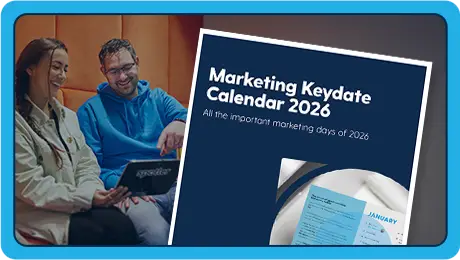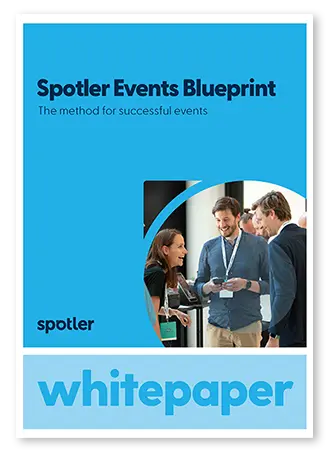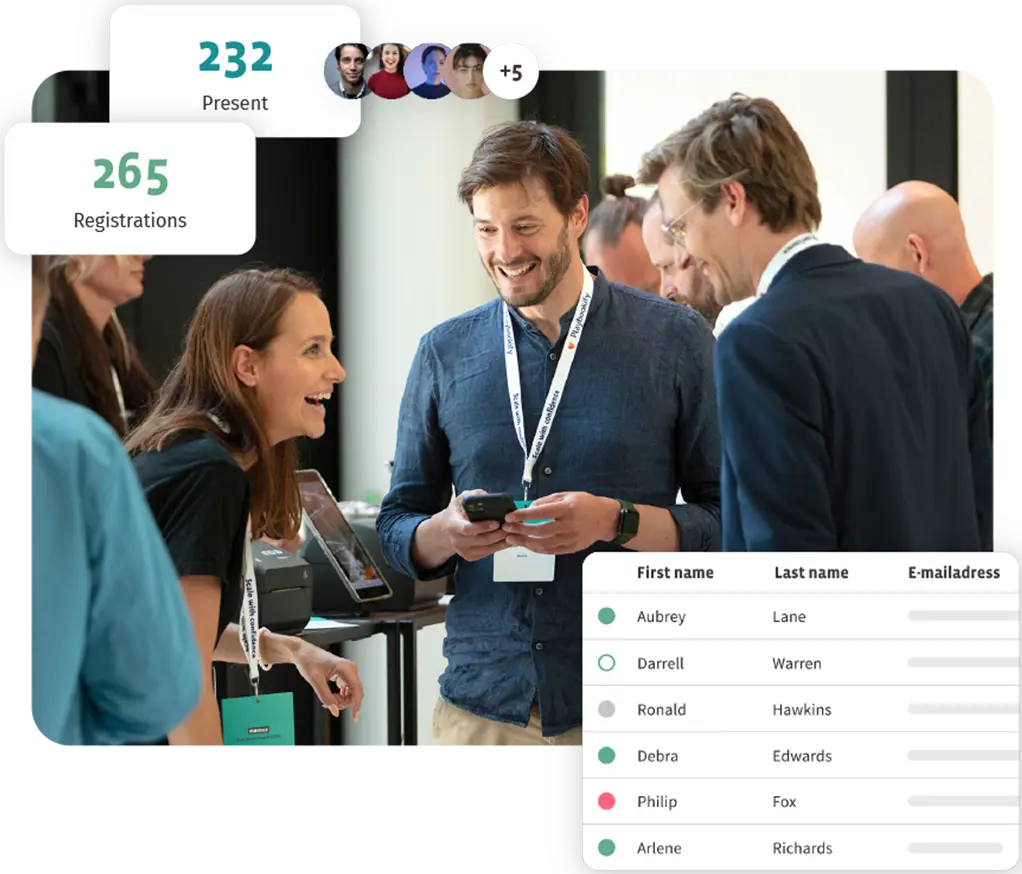Hands up if you still have a lanyard from an event you went to more than 12 months ago?
🙋🙋🙋
Going to events is great; pick up new ideas, network, let a new environment give you a burst of creativity. So, then why do so many of us shy away from hosting events as part of our strategy?
The most common objections we hear boil down to 5 key things. So, here’s our argument for why you should make events part of your strategy:

1. “It’s a lot of effort for 1 day/event.”
Events are hard work, there’s no getting away from it. You’ve got to find a venue that’s large enough, easy to get to, affordable AND available at a sensible time. You need enough staff to present, host, and run everything behind the scenes. Then once your last guest departs that’s it?
Not if you make the smart choice and extend the event beyond the day itself. Events are true content machines. Think about:
- videos or snippets (key message of a speaker, or a nice one-liner)
- photos (of the atmosphere, the content, the speakers or the venue)
- infographics (of valuable insights or from a speaker’s presentation)
- podcasts (of a panel discussion or a specific keynote)
- blogs (about the different break-outs or the most important outcomes)
- whitepaper (on the event theme or key results)
- email campaigns (with a win-action, hand-outs or other take-aways)
Storytelling is important here. What is the story you want to tell the target group? The sharper this is, the easier it becomes to tell the story in all kinds of ways and channels. And ask your speakers and attendees to do this too! This way your content will have the widest possible reach.
2. “Events don’t fit into our strategy.”
We need to be careful here; marketers who raise this objection fall into 1 of 2 distinct camps. Camp 1 have looked carefully at what it would take to make an event successful, compared this against their budget and how else they might invest the money, and made a deliberate decision, Camp 2 are deflecting from the fact that they haven’t done this crucial groundwork. Guess which camp is larger?
It may seem obvious, but proper objective setting is still often skipped or not carried out properly. What do you want to achieve with the event? Do you want to create awareness, generate leads or improve the relationship with existing customers? Set clear objectives and make them SMART, so that you can measure them later. Also ask the marketer (or other internal client) to be as specific as possible in determining the objective.
Whitepaper: The Spotler Method for Successful Events
Want to read more about event objectives and target group analysis?
In this white paper, we cover the 10 steps of the Spotler Event Blueprint Method:

3. “Who would we even invite?”
Personas and segmentation are hardly new concepts in marketing, but they often go out of the window when we talk about events audiences. Instead, we’re so determined to “fill the room” that we’ll invite just about anybody.
Once you’ve set clear goals for the event, you can decide what kind of people you want to invite, and what criteria you need to use to find them in your audience. If your goal is to make a big splash about your new product, then a large number will be the goal. However, if you’re focusing on a very specialist niche and going into deep detail, getting the right 10 people in the room might represent a roaring success.
A key step here is to communicate your strategy internally. If your CEO shows up to that 10-person roundtable expecting a stadium-sized crowd, say bye-bye to your budget next year!
4. “We get nothing back from our events”
Like any marketing activity, events need to deliver ROI in some form. If you aren’t sure where to start you could record:
- # registrations
- % no-show
- workshop participation
- NPS (net promoter score)
- # contact requests at or immediately after the event
- # new contacts within the registrations
- reach of (paid) social posts about the event (awareness)
Part of your planning stage needs to be how you will gather this data, both at the event and afterwards. A smart approach is to build content into your follow-ups; you could include an infographic of the key points from the day in the email where you ask for feedback.
Want to see how this works in Spotler Events? Get a demo!

5. “There’s no room in the budget.”
Events aren’t cheap. In some ways that’s part of the appeal; investing the time and money shows that you have something important to share.
All the steps above feed into this critical point; you need to focus on value rather than cost. If an event helps you close £7000 of new business in the short term, then spending £1000 seems like a bargain.
Don’t forget about the long tail of any content you produce afterwards; a whitepaper on the topic you covered may well deliver 1 or 2 warm leads a month for a year or more after the event.
You can even extend this to event production itself; if you want to record the event, but the bill for a videographer seems to steep, you could buy a decent camera and use it back at the office to record product videos or podcasts.
Ready to go live?
The difference between a successful event and an expensive day away from the office all come down to your preparation. Get the above steps right and you’ll see the positive impact sooner than you might think.
Spotler Events: event registration software
Spotler Events is the tool that handles the complexity of bookings, registration and follow-up all in one place, so you can focus on the content and the people. Take a look with a demo today.



